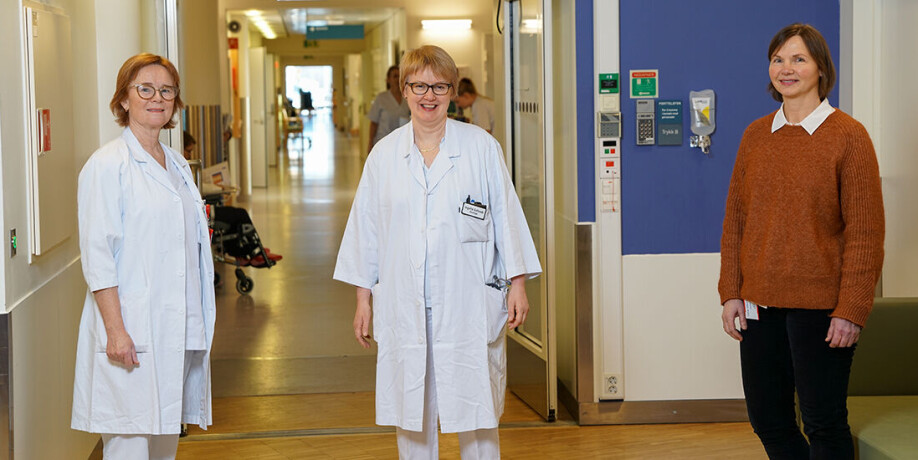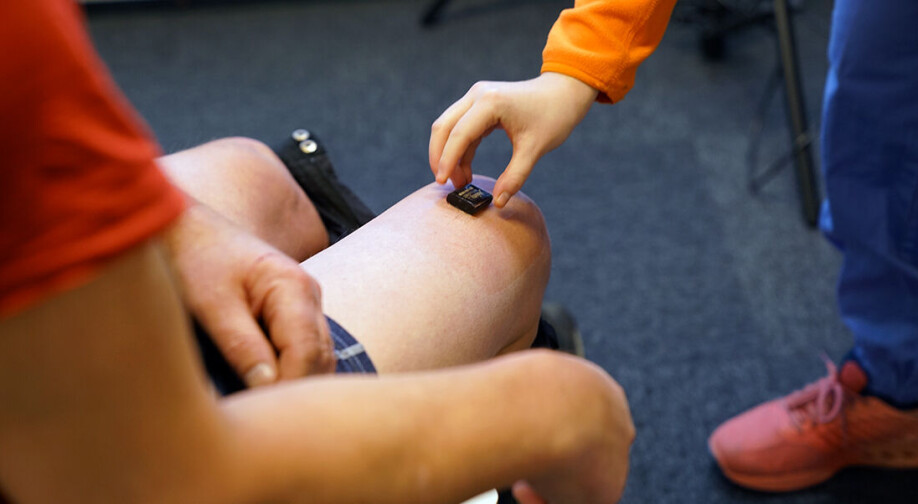THIS ARTICLE/PRESS RELEASE IS PAID FOR AND PRESENTED BY NTNU Norwegian University of Science and Technology - read more

Cognitive impairment afflicts majority of stroke patients
More than half of the individuals who suffer a stroke subsequently struggle with concentration and problem solving. Cognitive impairment following a stroke doesn’t go away. The problem has been overlooked, according to a major research project.
Paralysis and difficulty speaking are well-known problems following a stroke. Established treatment options are available for these problems. But most stroke patients also experience permanent cognitive impairment, and this problem has been overlooked. The problem is serious enough to be considered dementia for a quarter of the patients.
TV fundraising campaign for research
Every year, 12 000 people in Norway suffer a stroke, with the elderly being at greatest risk. On average, men have their first stroke when they are 72 years old, and women when they are 77 years old.
Ingvild Saltvedt, NTNU professor in the Department of Neuromedicine and Movement Science and head of the Department of Geriatrics at St. Olavs Hospital, has led a research project on cognitive impairment in stroke patients since 2015. The study came about thanks to funds raised in a 2013 TV fund-raising campaign that went to the Norwegian Association for Public Health and its work with dementia.
The research investigates causal relationships, methods for identifying at-risk patients, the importance of physical function and physical activity and how the patients’ condition develops over time. The research group – consisting of nine PhD candidates and a postdoctoral fellow – has published 15 articles so far.
Difficulties downplayed
Cognitive impairment may crop up as having difficulty following along when a lot of things are going on at once.
It is easy for relatives and caregivers to downplay these problems when a person struggles to concentrate, find words, orient themselves or solve problems.
Saltvedt thinks this response may be due to misplaced kindness.
“I think a lot of health professionals don’t actually know that much about cognitive impairment and find it a bit embarrassing when the patient answers incorrectly, for example,” she says.
“This reaction can happen because you don’t see the difficulty as a medical problem but as a characteristic of the person. Professional understanding has been a bit lacking, but it’s improving,” says Saltvedt.
She says that when she talks about this issue in gatherings with stroke patients, they confirm that the problem has not been adequately addressed.
“When I say that I think we have to talk about cognitive impairment, a lot of them nod. Everything gets harder with cognitive impairment. It’s a significant problem for people who have it, and it doesn’t get any easier if you don’t talk about it,” says Saltvedt.

815 patients in the study
The research study started in 2015 and lasted for three years. Five hospitals and 815 participants were involved. The patients were followed up after three, 18 and 36 months.
“We included patients in the study who came in with acute stroke. We asked relatives if they had been forgetful or had had problems such as searching for words or a lack of understanding, orientation or ability to reason prior to the stroke,” Saltvedt said.
“The patients had activity meters attached to their bodies, and we took MRIs of the brain. Internationally, this is a large and unique study with a long follow-up period,” Saltvedt says.
The researchers found that more than half of the patients had cognitive impairment afterwards. In a quarter of the patients, the cognitive problems were so great that they needed help in daily life, because they had developed dementia.
“Over time, these patients get a little better at language and in their ability to plan and perform practical tasks, but they don’t see general improvement. People with cognitive impairment still have it a year and a half after the stroke. There won’t be any major improvement, so the problem is there to stay.”
Finding risk factors
Cognitive impairment was already known to often affect stroke patients. The research study has revealed new understanding about its severity, how many people get it, how long it lasts and its causes.
“The study was conducted on a group of patients who received stroke treatment in accordance with the national guidelines. Most of them had relatively small strokes but still have cognitive impairment. We didn’t realize before the study that this happened,” says Saltvedt.
Some of the resulting difficulties are due to the stroke, and some are due to changes in the brain that were there even before the stroke.
“In terms of the cause, we see that patients who already have cardiovascular disease or who’ve had a stroke before, have an increased risk of cognitive impairment following stroke,” says Saltvedt.

Changes in the brain prior to stroke
“We looked at MRI images that show that when patients have a stroke, they already have changes in the brain that make them quite vulnerable. Many people who suffer a stroke have somewhat high blood pressure and some risk factors. They may have small vessels in the brain that are clogged, and then the stroke comes on top of that,” says Saltvedt.
She explains that the brain has a large reserve capacity, which means that patients manage to counteract factors that can lead to cognitive impairment, until the stroke occurs.
“We also see that the stroke contributes to the impairment. The more severe the stroke, the greater the risk of cognitive impairment afterwards,” says Saltvedt.
Better mapping
Saltvedt wants to use the research to find out which patients need help and support in everyday life due to cognitive impairment after a stroke.
“I think that patients who get these symptoms notice that there is something that is no longer working properly in their head. People need an examination and an explanation. Knowing what’s going on makes it easier for the patient and for loved ones,” says Saltvedt.
She adds that it is important for health professionals to have some knowledge of the topic. The researchers are now working to find simple mapping tools that people with a three-year health education degree can learn to use on stroke patients.
“You have to adapt everything you do afterwards with these symptoms in mind. If you don’t remember things well, you need help with taking your medicines correctly. If you embark on a treatment programme and get handed a sheet of exercises, it will be hopeless if you’re cognitively impaired. We need to adapt processes to better support these patients,” Saltvedt says.
References:
Stina Aam et.al.: The Impact of Vascular Risk Factors on Post-stroke Cognitive Impairment: The Nor-COAST Study. Front Neurol., 2021
Stian Lydersen et.al.: Clinically accessible neuroimaging predictors of post-stroke neurocognitive disorder: a prospective observational study. BMC Neurology, 2021.
Till Schellhorn et.al.: Pre-stroke cognitive impairment is associated with vascular imaging pathology: a prospective observational study. BMC Geriatrics, 2021.
Stina Aam et.al.: Post-stroke Cognitive Impairment—Impact of Follow-Up Time and Stroke Subtype on Severity and Cognitive Profile: The Nor-COAST Study. Frontiers in Neurology, 2020.
———
Read the Norwegian version of this article at forskning.no
See more content from NTNU:
-
This determines whether your income level rises or falls
-
Why is nothing being done about the destruction of nature?“We hand over the data, but then it stops there"
-
Researchers now know more about why quick clay is so unstable
-
Many mothers do not show up for postnatal check-ups
-
This woman's grave from the Viking Age excites archaeologists
-
The EU recommended a new method for making smoked salmon. But what did Norwegians think about this?





































